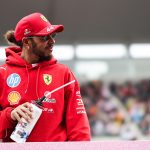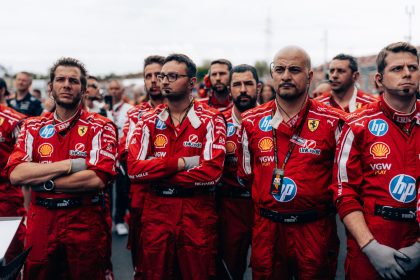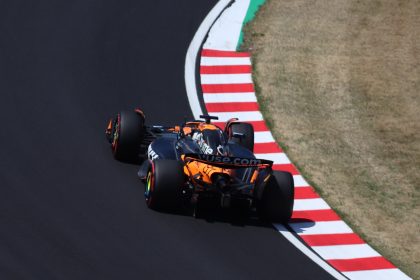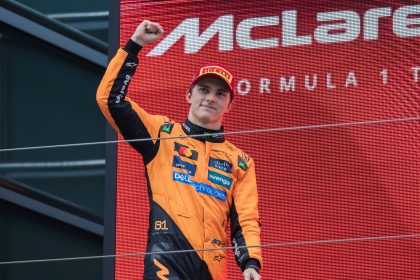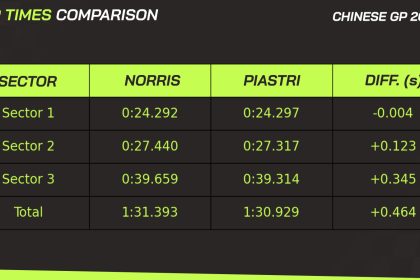There are moments in Formula 1 that transcend the boundaries of sport and become legend, myth, or—depending on your perspective—infamy. The 2006 Monaco Grand Prix qualifying “accident” involving Michael Schumacher and Rubens Barrichello is one such moment. Nearly two decades later, the echoes of that Saturday afternoon still reverberate through the paddock, whispered in the corridors of power and shouted in the grandstands. Was it strategy, sabotage, or simply the most cynical piece of gamesmanship ever witnessed on the streets of Monte Carlo? Let’s take a walk down the Rascasse, shall we?
- The Anatomy of a “Mistake”: What Really Happened at Rascasse?
- The Stewards’ Inquisition: When a Mistake Smells Like Strategy
- The Paddock Reacts: Outrage, Disbelief, and Schadenfreude
- The Ghosts of Ferrari Past: When Team Orders Become Team Chaos
- The Race: Redemption or Recrimination?
- Strategy or Sabotage? The Eternal Question
- The Numbers Don’t Lie: A Statistical Snapshot
- Legacy and Lessons: What Monaco 2006 Taught Us
- Waste a Bit More Time
The Anatomy of a “Mistake”: What Really Happened at Rascasse?
It was May 27, 2006. The sun was shining, the yachts were bobbing, and the world’s fastest men were threading the needle through Monaco’s unforgiving streets. Michael Schumacher, already a seven-time world champion and the architect of Ferrari’s modern dynasty, was on provisional pole. Fernando Alonso, the young pretender in the Renault, was on a lap that looked set to snatch the top spot.
And then, with seconds left in Q3, Schumacher’s Ferrari appeared to lock up at the tight Rascasse corner. The car came to a halt, awkwardly angled, partially blocking the track. Yellow flags waved. Alonso and others were forced to abort their flying laps. Schumacher, after a theatrical pause, restarted and trundled back to the pits.
The timing was exquisite. The effect, devastating. The paddock erupted.
The Stewards’ Inquisition: When a Mistake Smells Like Strategy
Formula 1 has seen its share of “accidents,” but few have been dissected with such surgical precision. The FIA stewards, perhaps still nursing memories of Schumacher’s 1994 and 1997 controversies, launched an immediate investigation. They pored over video footage, telemetry, and Schumacher’s own explanation.
Schumacher, ever the master of the straight face, insisted it was a simple error:
I locked up, I made a mistake, I stopped to avoid the barrier.
Michael Schumacher
The stewards, however, were not buying what Michael was selling. The telemetry didn’t match his story. The car’s behavior, the steering input, the lack of urgency—none of it added up.
Their verdict was damning:
We are left with no alternative but to conclude that the driver deliberately stopped his car on the circuit.
FIA Stewards’ Report, Monaco 2006
All of Schumacher’s qualifying times were deleted. From pole to last on the grid. In Monaco, that’s the equivalent of being sent from the penthouse to the basement—without the elevator.
The Paddock Reacts: Outrage, Disbelief, and Schadenfreude
If Formula 1 is a soap opera, then Monaco 2006 was its most dramatic episode. The reactions were swift and merciless.
Fernando Alonso, who had been denied a shot at pole, didn’t mince words:
It was very unsporting. It’s the worst thing I have ever seen in Formula 1.
Fernando Alonso
Mark Webber, never one to shy away from a microphone, called it “the cheapest, dirtiest thing I’ve ever seen in F1.” Jacques Villeneuve, who had his own history with Schumacher, simply rolled his eyes.
Ferrari, for their part, circled the wagons. Team principal Jean Todt insisted it was a genuine mistake, that the penalty was “excessive.” But the damage was done. The media, the fans, and even some within Ferrari’s own garage were unconvinced.
For a taste of the outrage, you can revisit the fan reactions and analysis in this YouTube video.
The Ghosts of Ferrari Past: When Team Orders Become Team Chaos
To understand the full flavor of “Rascassegate,” you have to appreciate Ferrari’s history with controversy. This is the team that gave us Austria 2002 (“Let Michael pass for the championship”), the team that has always believed in the primacy of the cause over the individual. Schumacher was not just a driver; he was the architect, the general, the chosen one.
But Monaco 2006 was different. This wasn’t a coded radio message or a pit stop gone awry. This was a driver, alone in the cockpit, making a decision that would shape his legacy. Was it desperation? Was it arrogance? Or was it simply the cold calculation of a man who knew that in Monaco, pole is everything?
As one commentator put it:
Back in my day, we had gear sticks, not marketing departments.
Pedro, Formula 1 BG
The Race: Redemption or Recrimination?
On Sunday, Schumacher started from the pit lane. In Monaco, that’s usually a death sentence. But this was Michael Schumacher. He carved his way through the field, overtaking with surgical precision, and finished fifth. It was a drive of defiance, a reminder that whatever else you might say about him, Schumacher was still the most relentless competitor of his era.
Alonso won the race, but the story was all about the man in red. The debate raged: Was this the act of a desperate champion, or the logical extension of a win-at-all-costs mentality that had defined Schumacher’s career?
Strategy or Sabotage? The Eternal Question
Let’s be clear: Formula 1 is a sport built on the edge of legality. Every team, every driver, is looking for the grey area, the loophole, the advantage. But there are lines, and in Monaco 2006, Schumacher crossed one.
The stewards’ decision was unequivocal. The paddock’s verdict was even harsher. And yet, there remains a small, stubborn contingent who argue that Schumacher was simply doing what champions do: exploiting every opportunity, pushing every boundary.
But as history has shown—think Senna at Suzuka, Prost at Estoril, or even Hamilton’s “backing up” in Abu Dhabi—there is a difference between hard racing and outright sabotage.
The Numbers Don’t Lie: A Statistical Snapshot
For those who prefer their drama with a side of data, here’s a quick look at the fallout from Monaco 2006:
| Position | Driver | Team | Qualifying Result | Race Finish |
|---|---|---|---|---|
| 1 | Fernando Alonso | Renault | 2nd | 1st |
| 2 | Juan Pablo Montoya | McLaren | 3rd | 2nd |
| 3 | David Coulthard | Red Bull | 5th | 3rd |
| … | … | … | … | … |
| 22 | Michael Schumacher | Ferrari | DSQ (from pole) | 5th |
Schumacher’s drive from last to fifth was remarkable, but it couldn’t erase the stain of Saturday.
Legacy and Lessons: What Monaco 2006 Taught Us
Nearly twenty years on, “Rascassegate” remains a cautionary tale. It’s a reminder that greatness and controversy are often two sides of the same coin. Schumacher’s legacy is secure—seven titles, 91 wins, countless records—but Monaco 2006 is the asterisk, the footnote, the moment when the mask slipped.
For the sport, it was a wake-up call. The FIA tightened its rules, the stewards became more vigilant, and the fans—well, the fans never forgot.
As one wag on the forums put it:
And if you can’t figure out a way, just drive in to them 👌
reverse_friday, Reddit
Waste a Bit More Time
If you want to relive the drama, outrage, and analysis of Monaco 2006, here are some links to keep you busy:
- Michael Schumacher’s 2005 interview about Ferrari’s disastrous season (Reddit)
- Why the team orders rule must stay – RaceFans
- Scuderia Ferrari Team – pitpass
And if you’re still not satisfied, there’s always the endless debate on social media. Just remember: in Formula 1, the only thing faster than the cars is the speed with which a scandal becomes legend.







